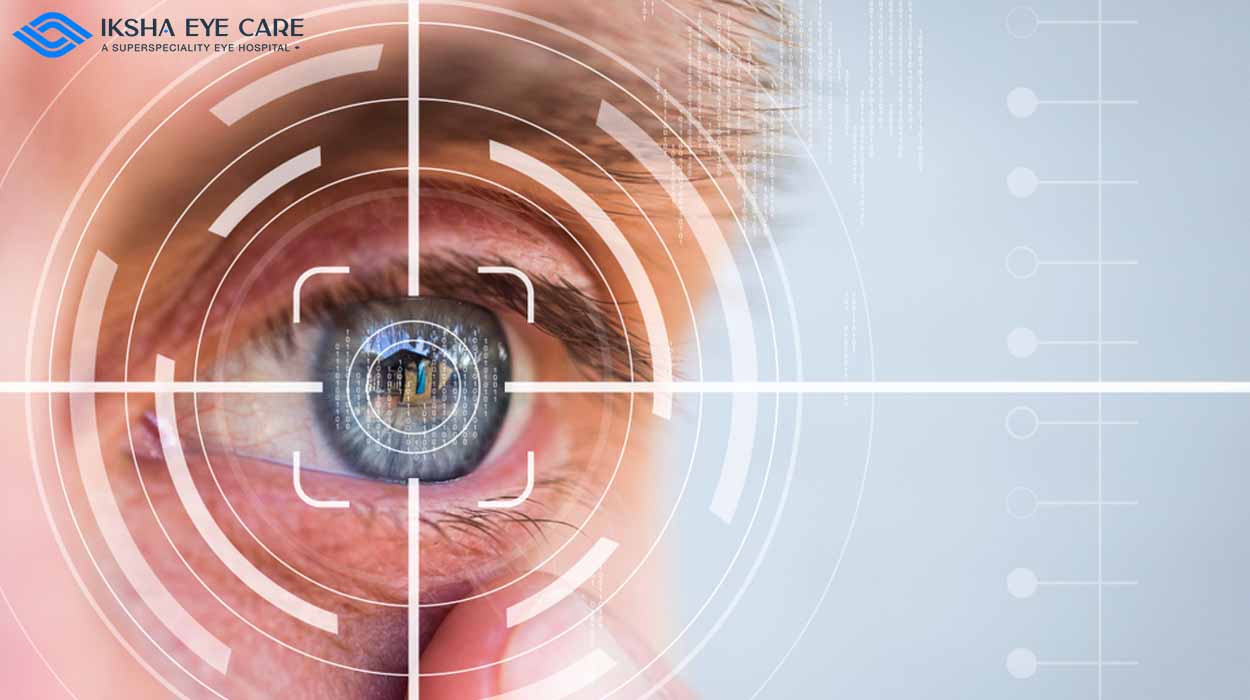Understanding the Various Eye Conditions Treated by Specialized Eye Care Professionals
In the realm of eye care, specialized experts play an important role in diagnosing and dealing with a large array of eye conditions. From usual refractive mistakes that influence vision clearness to age-related conditions that pose obstacles as we age, the knowledge of these specialists expands to managing vision-threatening illness and elaborate corneal disorders. Furthermore, the complexities of neurological eye problems present one-of-a-kind challenges that require specialized treatment. As we start this expedition of the numerous eye problems dealt with by specialized eye care professionals, it becomes noticeable that the elaborate web of ocular health and wellness holds a myriad of fascinating understandings waiting to be revealed.
Usual Refractive Mistakes
Refractive errors are common aesthetic conditions triggered by an imperfection in the eye's ability to appropriately concentrate light, leading to blurred vision. One of the most widespread kinds of refractive errors include nearsightedness (nearsightedness), hyperopia (farsightedness), astigmatism, and presbyopia. Myopia takes place when the eyeball is too long or the cornea is also rounded, creating far-off challenge appear fuzzy. Hyperopia, on the various other hand, happens when the eyeball is too short or the cornea is too level, causing nearby things running out focus. Astigmatism is characterized by an irregularly shaped cornea, causing distorted or blurred vision in all ranges. Presbyopia is an age-related problem where the lens loses its flexibility, making it hard to concentrate on close items.
These refractive mistakes can be fixed with numerous techniques, consisting of glasses, call lenses, or refractive surgery. Eye treatment specialists play an essential role in detecting and handling refractive errors to aid individuals attain more clear vision and improve their lifestyle.
Age-Related Eye Problems
One of the most prevalent age-related eye conditions is age-related macular deterioration (AMD), a condition that creates central vision loss and can make tasks like reading and driving challenging. Cataracts, one more typical problem amongst older individuals, cause clouding of the eye's all-natural lens, leading to obscured vision. Regular eye tests with specialized eye treatment specialists are crucial for early discovery and management of these age-related eye conditions to protect vision and preserve eye health as people grow older.
Vision-Threatening Conditions
Vision-threatening diseases include an array of significant eye problems that have the potential to considerably affect an individual's eyesight and general aesthetic feature. These illness pose a risk of long-term vision loss if not quickly diagnosed and dealt with by specialized eye care specialists. Some typical vision-threatening illness consist of official site glaucoma, diabetic retinopathy, age-related macular deterioration (AMD), and retinal detachment.
Glaucoma is a group useful link of eye conditions that harm the optic nerve, often as a result of high intraocular pressure, leading to field of vision loss and prospective loss of sight if left without treatment. Diabetic retinopathy is a complication of diabetes mellitus that affects blood vessels in the retina, causing vision impairment or loss of sight. AMD is a modern condition affecting the macula, resulting in central vision loss. Retinal detachment occurs when the retina divides from its underlying tissue, causing unexpected vision loss that needs prompt clinical attention (refractive surgeries in al).
Very early discovery, regular eye exams, and timely treatment are vital in managing vision-threatening illness to maintain eyesight and maintain lifestyle. Specialized eye care experts play an essential role in diagnosing, dealing with, and managing these conditions to protect against permanent vision loss.

Corneal Conditions
Corneal conditions incorporate a range of problems that influence the transparent front part of the eye, referred to as the cornea. These disorders can bring about discomfort, visual disruptions, and in severe situations, vision loss. One common corneal problem is keratoconus, where the cornea thins and bulges external right into a cone form, creating astigmatism and obscured vision. Corneal dystrophies, such as Fuchs' dystrophy, result in progressive vision loss due to abnormal down payments in the cornea. Corneal abrasions, often created by injury or international items, can lead to discomfort, redness, and sensitivity to light. Furthermore, infections like keratitis can inflame the cornea, potentially leading to scarring and vision disability if not promptly treated. Therapy for corneal conditions varies depending click here now on the certain condition yet may include medications, get in touch with lenses, or in severe situations, corneal transplants. Regular eye tests are essential for early discovery and administration of corneal problems to maintain vision and eye wellness.
Neurological Eye Conditions
Neurological eye problems involve problems that affect the connection between the eyes and the mind, influencing visual handling and total eye function. These problems can materialize in numerous means, influencing vision, eye activities, and even the coordination between the eyes. One typical neurological eye condition is optic neuritis, identified by inflammation of the optic nerve bring about vision loss, color desaturation, and pain with eye movement.
An additional substantial problem is nystagmus, where the eyes make repetitive, uncontrolled activities, influencing aesthetic acuity and depth understanding. Additionally, problems like amblyopia, typically referred to as "careless eye," arise from irregular visual growth in very early childhood years, causing decreased vision in one eye.
Neurological eye conditions call for customized treatment from professionals like neuro-ophthalmologists who have know-how in both neurology and ophthalmology. Diagnosis frequently involves a thorough eye evaluation, imaging studies, and cooperation with specialists to attend to the underlying neurological concerns affecting the visual system. Treatment approaches can include medicine, vision therapy, or in extreme cases, medical interventions to take care of these intricate conditions properly.

Conclusion
To conclude, specialized eye care experts treat a large range of eye conditions, including common refractive errors, age-related eye problems, vision-threatening conditions, corneal disorders, and neurological eye problems - refractive surgeries in al. By recognizing these numerous conditions and looking for proper therapy from eye treatment specialists, individuals can preserve optimal eye health and wellness and vision. It is crucial to prioritize routine eye examinations and follow advised therapy strategies to preserve and safeguard one's vision for the future